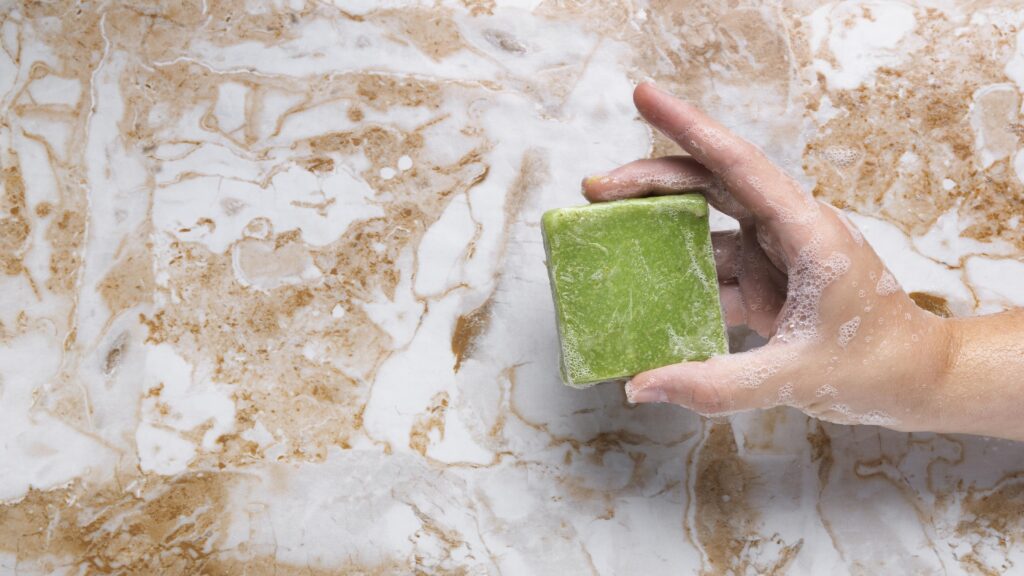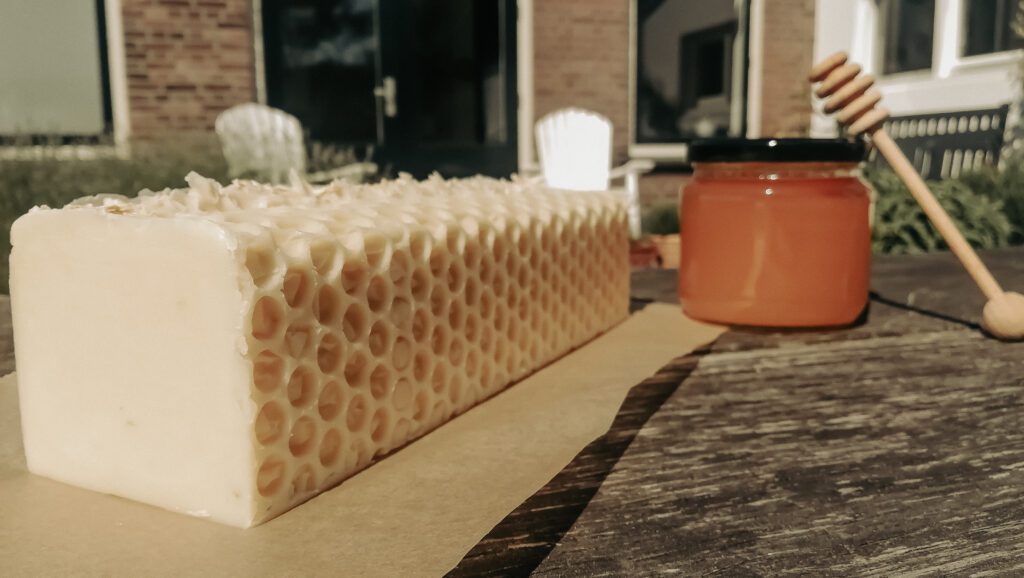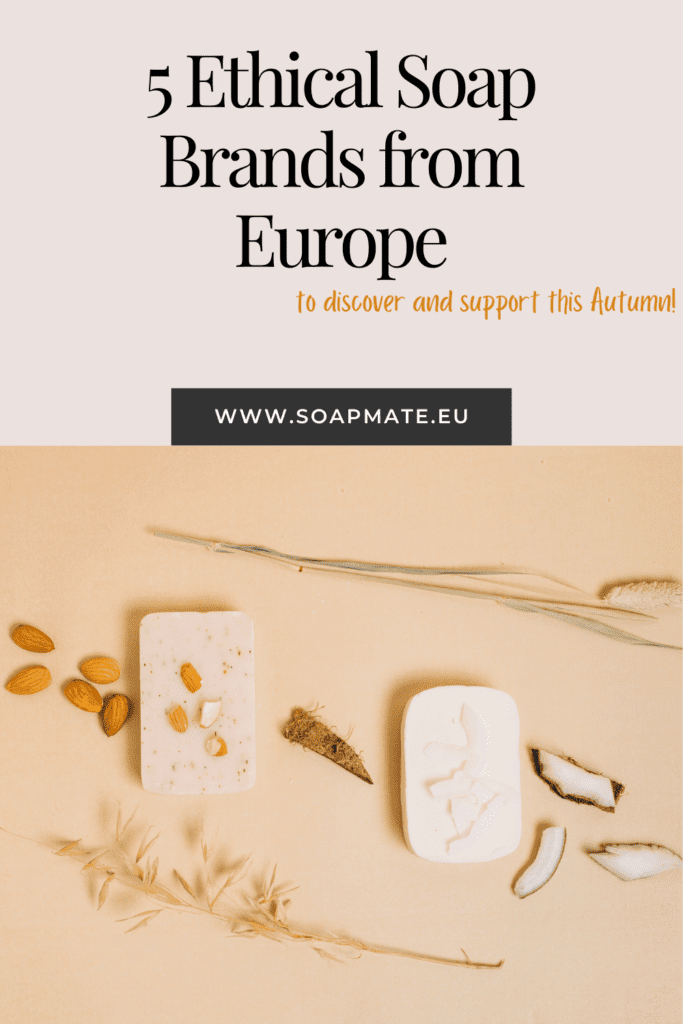Check Out These Ethical Soap Brands from Europe
If you're considering stepping into the world of soapmaking, it's likely you’re interested in making ethical soap that aligns with your values of sustainability and eco-friendliness. With the increasing demand for ethical soap bars, there has never been a better time to explore this craft while also making choices that are kind to the planet. This guide will walk you through everything you need to know about ethical soap, from understanding what makes soap ethical to sourcing sustainable ingredients and even finding the best ethical soap brands in Europe.

What Makes Soap Ethical?
Ethical soap is about more than just the final product; it's a commitment to sourcing ingredients responsibly, ensuring fair labour practices, and minimising environmental impact. Ethical soap typically features natural, sustainably sourced ingredients, free from harmful chemicals, and packaged in eco-friendly materials. It's a choice that supports a cleaner planet and healthier skin.
When choosing ethical soap, look for brands that are transparent about their sourcing and production processes. They should ideally use organic, Fair Trade certified ingredients and avoid palm oil, which is linked to deforestation and habitat destruction. Moreover, ethical soap bars should be cruelty-free, meaning no animal testing is involved at any stage of production.
The Rise of Ethical Consumerism: Why Ethical Soap is More Than Just a Trend
In recent years, there has been a significant shift in consumer behaviour towards ethical consumerism - a growing movement where consumers make purchasing decisions based on a product’s impact on the environment, society, and ethical practices. This shift is not just a passing trend; it represents a deeper awareness and responsibility towards the planet and its inhabitants. For those interested in ethical soap, understanding this broader movement can offer insights into why ethical choices matter and how they fit into the larger landscape of sustainable living.
Ethical consumerism is driven by the desire to purchase products that align with personal values, such as environmental sustainability, fair labour practices, cruelty-free testing, and transparency in production. This is particularly important in the beauty and personal care industry, where traditional practices often involve harmful chemicals, environmentally damaging processes, and unethical labour practices. Ethical soap, in this context, is more than just a personal care product; it is a statement of intent, a commitment to a lifestyle that prioritises the welfare of people and the planet.
One of the primary factors behind the rise of ethical consumerism is increased access to information. Today’s consumers are more informed than ever, with access to a wealth of information about the products they buy, from ingredient lists to company values and supply chain transparency. Social media, online reviews, and advocacy groups have empowered consumers to hold brands accountable and demand higher standards. This transparency allows consumers to make choices that reflect their values, such as opting for ethically made soaps that are free from harmful chemicals, sustainably sourced, and packaged with minimal environmental impact.
The push towards ethical products is also a response to the growing environmental crises, such as climate change, deforestation, and pollution. Many traditional soap products contain ingredients that contribute to these issues, such as palm oil, which is a leading cause of deforestation and loss of biodiversity, or synthetic fragrances and dyes that can pollute waterways and harm aquatic life. In contrast, ethical soap brands prioritise natural, biodegradable ingredients that minimise environmental impact. By choosing ethical soap, consumers can reduce their personal carbon footprint and contribute to a more sustainable future.

Moreover, ethical soap is often linked with holistic health benefits. Many conventional soaps contain harsh chemicals that can irritate the skin, disrupt hormonal balance, or even contribute to long-term health issues. Ethical soap, on the other hand, is usually made with natural ingredients that are gentle on the skin and free from toxins. For consumers who are increasingly health-conscious, the move towards ethical soap represents a proactive approach to wellness, aligning external choices with internal health goals.
The ethical consumer movement also places a strong emphasis on supporting fair trade and ethical labour practices. In many parts of the world, the production of beauty and personal care products involves exploitative labour practices, often affecting women and children in low-income countries. Ethical soap brands, however, are committed to fair wages, safe working conditions, and empowering communities. By purchasing ethical soap, consumers can contribute to a fairer economy that respects human rights and supports equitable opportunities for workers across the globe.
In addition, the rise of zero-waste and plastic-free movements has further propelled the popularity of ethical soap. With plastic pollution reaching critical levels, consumers are increasingly seeking products that offer sustainable packaging solutions. Ethical soap brands often use biodegradable, compostable, or recyclable packaging materials, significantly reducing waste compared to traditional liquid soaps packaged in plastic bottles. Some brands even offer refill stations or bulk purchasing options, allowing consumers to further minimise their environmental impact.

Another critical aspect of ethical consumerism is the power of consumer demand to drive industry change. As more people choose ethical soap and other sustainable products, companies are compelled to adapt to these new expectations. This has led to a wider availability of ethical soap options on the market, from small artisanal producers to larger brands making a conscious shift towards sustainability. The collective purchasing power of ethical consumers is a formidable force, capable of influencing not just product lines but also broader industry standards and regulations.
For those just beginning their journey into ethical consumerism, the world of ethical soap offers an accessible and impactful starting point. Switching to ethical soap is a relatively simple change that can yield significant benefits, both personally and globally. It’s an opportunity to support brands that are making a positive difference and to reject practices that harm people and the planet. Furthermore, the variety of ethical soap options available means that consumers do not have to compromise on quality, scent, or luxury. From artisanal bars infused with essential oils to simple, fragrance-free options for sensitive skin, there is an ethical soap for every preference and need.
As ethical consumerism continues to grow, it’s clear that ethical soap is more than just a niche market - it’s a reflection of a larger shift towards mindful living and responsible consumption. This movement is about recognising the interconnectedness of our choices and understanding that every purchase has a ripple effect on the world around us. By choosing ethical soap, consumers are not only caring for their own health and wellbeing but also making a statement about the kind of world they want to live in - a world that values sustainability, fairness, and kindness.

Top Ethical Soap Brands in Europe
Finding the right ethical soap brands can be daunting with so many options available. Here are some of the top ethical soap brands in Europe that offer products made with sustainable practices and eco-friendly ingredients:
Friendly Soap (UK): Known for their zero-waste packaging and use of natural, biodegradable ingredients, Friendly Soap is a UK-based brand that prioritises sustainability. Their ethical soap bars are handmade without palm oil, sulphates, or preservatives, making them an excellent choice for eco-conscious consumers.
Foamie (Germany): Foamie offers vegan, cruelty-free soap bars made with ingredients sourced from sustainable origins. Their solid soap bars are designed to reduce water usage and come in recyclable packaging, making them a popular choice for ethical consumers across Europe.
Lamazuna (France): This French brand is dedicated to reducing plastic waste with their solid soaps and shampoos. Lamazuna’s ethical bath products are vegan, cruelty-free, and made using fair trade ingredients, with a strong commitment to eco-friendly production.
Dr. Bronner’s (International): A well-known brand that’s widely available across Europe, Dr. Bronner’s soaps are certified organic, Fair Trade, and use 100% recycled packaging. Their ethical consumer soap range includes a variety of scents and formulations, all made with ethically sourced ingredients.
Eco Warrior (UK): Eco Warrior is an ethical soap brand from UK, committed to plastic-free and sustainable soap products. Their ethical soap bars are made from natural ingredients and are free from SLS, parabens, and palm oil, aligning perfectly with ethical consumer values.

Understanding Ethical Bath Products
Ethical bath products encompass more than just soap; they include a wide range of items like bath bombs, shower gels, and skincare products that adhere to the same principles of sustainability and ethical sourcing. Ethical bath products are made without synthetic fragrances, artificial colours, or harsh chemicals that can harm both your skin and the environment.
Look for brands that use organic and biodegradable ingredients, and are committed to cruelty-free practices. Many ethical soap brands also offer a range of complementary bath products, allowing you to maintain a consistent ethical standard across your skincare routine.

Eco-Friendly Soap Recipe for Beginners
Making your own ethical soap at home can be an incredibly rewarding and sustainable choice. Here's a simple eco-friendly soap recipe to get you started:
Ingredients:
- 500g olive oil (preferably organic and Fair Trade)
- 200g coconut oil (ensure it's sustainably sourced)
- 100g shea butter (from a Fair Trade supplier)
- 250ml distilled water
- 100g lye (sodium hydroxide)
- Essential oils for fragrance (optional, ensure they are organic)
Instructions:
Prepare Your Workspace: Ensure you have a clean, well-ventilated area. Wear protective gloves and goggles when handling lye.
Mix the Lye and Water: Slowly add the lye to the water (never the other way around) and stir until dissolved. Allow the mixture to cool to around 40°C.
Heat the Oils: In a large pot, gently heat the olive oil, coconut oil, and shea butter until fully melted. Cool to 40°C.
Combine Lye and Oils: Slowly pour the lye mixture into the oils, stirring continuously. Use a stick blender to mix until you reach a light trace (the mixture thickens and leaves a trail when drizzled).
Add Essential Oils: If using, add your choice of essential oils and mix thoroughly.
Pour into Moulds: Pour the soap mixture into moulds and cover with a towel. Leave to set in a cool, dry place for 24-48 hours.
Cure the Soap: After removing from the moulds, let the soap bars cure for 4-6 weeks in a well-ventilated area.
This eco-friendly soap recipe uses simple, natural ingredients that are kind to your skin and the planet. Plus, making your own soap allows you to control the ingredients and customise scents to your preference.

How and Where to Find Eco-Friendly Soap Ingredients in Europe?
Finding eco-friendly soap ingredients is a crucial step in making truly ethical soap. In Europe, many suppliers offer sustainably sourced ingredients for the ethical soapmaker.
Naissance (UK & EU): Offers a wide range of ethically sourced oils, butters, and essential oils. They are committed to transparency and sustainable practices.
Aromantic (UK): Specialises in organic and Fair Trade ingredients, perfect for crafting eco-friendly soap and other bath products.
Making Cosmetics (EU): Provides a broad selection of sustainable soapmaking supplies, including vegan, palm-free, and cruelty-free options.
When purchasing your ingredients, look for suppliers that provide detailed sourcing information and certifications such as Fair Trade, organic, or RSPO (Roundtable on Sustainable Palm Oil) for any palm-derived ingredients.

Supporting Ethical Soap Brands and Being an Ethical Consumer
Choosing to buy or make ethical soap is a significant step towards supporting sustainable practices and reducing your environmental footprint. By prioritising ethical soap brands and sourcing eco-friendly ingredients, you contribute to a more ethical and sustainable market.
As an ethical consumer, it's essential to research the brands you support, looking into their sourcing, production methods, and overall environmental impact. Supporting local and European-based brands also helps reduce carbon footprints associated with shipping.
Embrace the journey of making or buying ethical soap, knowing that each small step towards sustainability makes a difference. Whether you're crafting your own soap or supporting ethical soap brands, your choices contribute to a cleaner, greener world for future generations.
In conclusion, ethical soap is not just a product—it's a commitment to sustainability, fair trade, and eco-friendly practices. Whether you’re buying from ethical soap brands in Europe or diving into the world of DIY soapmaking with eco-friendly soap recipes, there are countless ways to embrace this ethical journey. So go ahead, lather up with confidence, knowing you're making a difference with every wash.

This article was all about ethical soap practices, the importance of sustainably-sourced soap ingredients, and five European brands that produce eco-friendly soap bars.
